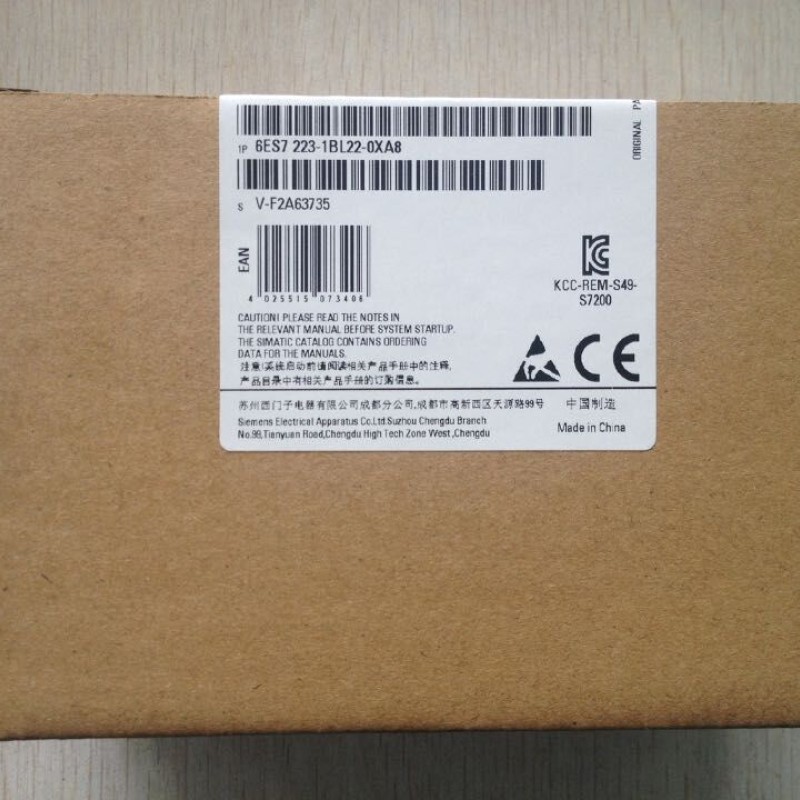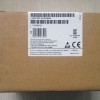



Why buy from us?
We offer competitive prices and quality services!
Ask a Question About This Product
- Stock: In Stock
- Model: 231-7PD22-0XA8
- Weight: 0.21kg
2. Shipping options include DHL, UPS, FedEx, and EMS.
3. Estimated delivery time for express shipping via DHL, UPS, FedEx, or EMS generally ranges from 3 to 10 business days, depending on the destination country.
4. Please verify your address thoroughly when placing your order.
5. Important for buyers: You are responsible for any tariffs on accessories. To potentially avoid these tariffs, you may choose EMS express shipping.
6. The shipping service is responsible for any accidents, delays, or other issues that may arise.
Returns:
We offer a 14-day return policy. If you wish to return an item, please contact us within 14 days and ensure that the package remains unopened. The buyer is responsible for the shipping costs for both the return and the initial delivery, as well as any applicable customs fees. Once we receive and inspect the product, we will process your refund within 24 hours.
For any quality issues that arise during normal use within the warranty period, we will repair the item free of charge. The buyer is responsible for the return shipping cost, while our company will cover the cost of re-shipping the repaired item.
Siemens PLC 6ES7 231-7PD22-0XA8
Product Description:
The S7 brings to the user a powerful solution to a host of control applications, which is easy to adapt and expand the system. The S7 is a family of PLC’s which allows the user to tailor their selection of components which best suits their requirements, and is the long term successor to the highly successful S5 range. Whatever the S5 can do, the S7 can do more quickly and more easily.,The 3rd generation of S7-200 now builds on the success of the original range and exploits new CPU’s in order to produce even faster and more powerful range of PLC's. The range of CPU's available has been increased with the introduction of the new 224XP, as has the range of digital, analogue and communications expansion modules.,For the faster type of application real time control is easily achieved by use of the comprehensive range of built-in interrupts. Timed, Communication, High Speed Counter, High Speed Pulse Output, and hardware interrupts are all available, and the implementation of a priority table means that all the interrupts can work simultaneously.,Communications with S7-200 is built in. Inter PLC communications is achieved using two wire network which can be up to 1200 meters and can have up to 126 nodes. In "Freeport" mode the PLC's RS-485 port runs in free ASC11 mode making it possible to communicate with other devices.,In line with Siemens objective to make the programming of S7-200 as user friendly as possible MicroWin programming software has been further improved. These improvements all help minimise program development time. This has been achieved by including more and improving existing "wizards". These help program developers with the more routine/complex parts of their programs, e.g. TD200 configuration, PID loop configuration, High Speed Counter configuration, etc. Inclusion of context sensitive help also means that all the information required is at the users fingertips.
New CPU hardware support provides the option to turn off run mode edit to obtain more program memoryCPU 224XP supports onboard analogue I/O and two communication portsCPU 226 includes additional input filters and pulse catch facility0.22μs processing time per instruction
Modular Expansion up to 256 total I/O (except S7-221)Powerful Instruction Set, and Real Time performanceProgramming via RS-485 comms portAll models have EEPROM memories for user program storage2 or 4 x 30kHz pulse train outputs (dc powered models only )
Specifications:
Description EM 231 Analog Input RTD, 4 Inputs
Order Number 6ES7 231-7PD22-0XA0
Dimensions (W x H x D) 71.2 mm x 80 mm x 62 mm
Weight 210 g
Dissipation 1.8 W
VDC requirements +5 VDC + 24 V 87 mA 60 mA
Number of inputs 4
Removable connector no
Isolation Field to logic Field to 24 VDC 24 VDC to logic 500 VAC 500 VAC 500 VAC
Common mode input range(input channel to input channel) 0
Common mode rejection > 120 dB at 120 VAC
Input type Module ground referenced RTD (2, 3, or 4 wire connections)
Input ranges1 RTD types (select one per module): platinum (Pt), copper (Cu), nickel (Ni), or Resistance, 14 additional GOST types. See page 3 for available RTD types.
Input resolution Temperature Resistance 0.1° C/0.1° F 15 bits plus sign resistive
Measuring Principle Sigma-delta
Module update time: All channels 810 mS (1400 ms for Pt10000)
Wire length 100 meters to sensor max.
Wire loop resistance 20 Ω, 2.7 Ω for 10 Ω Cu and Pt RTDs
Suppression of interference 80 dB at 50 Hz/60 Hz/400 Hz
Data word format Resistance: 0 to +27648
Maximum sensor dissipation 1m W
Input impedance ≥ 10 MΩ
Maximum input voltage 30 VDC
Input filter attenuation -3 db at 21 kHz
Basic error 0.1% FS (resistance)
Repeatability 0.05% FS
LED indicator 2 (External 24 VDC present and System Fail)
24 VDC supply voltage range 20.4 to 28.8 VDC (Class 2, Limited Power, or sensor power from PLC)
The input range selection (temperature, voltage or resistance) applies to all channels on the module.








